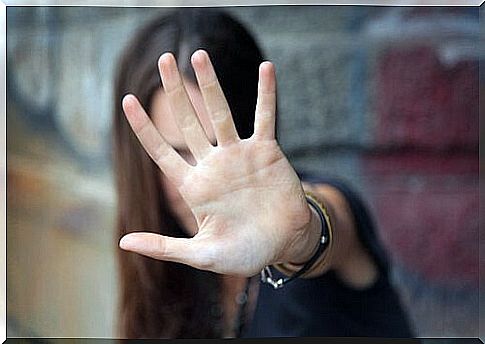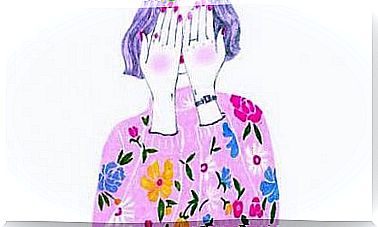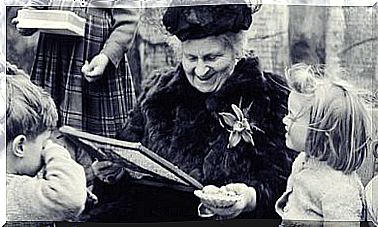Intolerant People Have Some Attitudes In Common

How do you see yourself? Have you ever stopped for a second and thought about how other people see you? For there are certain common attitudes that bigoted people share. So it is possible that you or I do too. Do you want to find out if this is the case?
It is not easy to be genuinely tolerant. That is why we are sometimes taken by surprise when we think of ourselves as tolerant. Because we don’t always work on tolerance enough to really call ourselves tolerant. It’s like Jaime Balme says, “You’re not tolerant if you can’t tolerate bigotry.” So the question is whether you tolerate tolerance.
Do you tolerate intolerance?
Before we go too far here, let’s mention a simple exercise suggested by Pablo Morano, an expert in personal growth. This guide contains a series of questions that can give us a true degree of where we are on the so-called tolerance scale.

Are you someone who rejects things that are different? Do you immediately say no to unusual, strange ideas and even end up looking down on them? Are you a person who gets annoyed when people with different opinions seem to have more opportunities to express their opinion? Do you think everyone should think the same way you do?
If you answered yes to any of these questions, it means that you are intolerant to some degree. We are talking about levels here. Because if we were to draw a line between “tolerance” and “intolerance,” we would be somewhere along this line.
By this we mean that the answers to these questions do not all carry the same weight. They also don’t all point in the same direction. For we all have some degree of tolerance or bigotry. This depends on the circumstances and on our personality.
Intolerant people have certain attitudes in common
Independent of other personal characteristics, there are certain attitudes that intolerant people often have. It is a predisposition that is always linked to a rigid way of thinking. We want to highlight some of the most visible poses here…
Fanaticism
In general, a bigoted person shows fanaticism when he defends his beliefs and points of view. This can happen in a political or religious conversation. They are then unable to argue or discuss without following an extreme train of thought. Because they think the way they see things is the only way. In fact, they will try to impose their view of the world on others.
Psychological rigidity
Intolerant people are afraid of everything that is different. This means that they are rigid in their psychology. Because they have a hard time accepting that other people can have different philosophies and perspectives. So they distance themselves from everything that doesn’t fit their way of thinking. They won’t accept it. It can even make them feel anxious.
Being a know-it-all but not really knowing everything
Intolerant people feel that they have to defend themselves against the people who are different or think differently. So they start making things more beautiful or inventing them. They present theories as facts and act as connoisseurs of subjects about which they actually know nothing.
Moreover, they do not accept points of view other than their own. They also don’t listen and they think their narrow-mindedness is justified. Sometimes they even turn to insults or aggressiveness when they feel like they are up against the wall or have run out of arguments.

Their world is simple and lacks depth
Intolerant people’s view of the world is much simpler than the world really is. Since they do not listen, they are therefore not open to other points of view and ways of thinking. So their world is black and white.
That includes thinking things like “you either support me or you are against me”… “something is ugly or beautiful”… “right or wrong.” So they don’t realize that there can be a lot of gray between black and white. What they need is safety and security, even if it is not real.
Intolerant people cling to routines
In general, they usually don’t like unexpected or spontaneous things. They stick tightly to their routines. After all, these are things they know well and that offer them security and peace of mind. Otherwise, they get stressed or frustrated extremely easily.
They have problems with relationships
Typical for intolerant people is the lack of empathy. This can cause them serious social problems. After all, these people have to correct, dominate and always impose their point of view. That causes them to surround themselves with passive people or people with low self-confidence. Because otherwise their interactions become impossible or too complicated.
They are often extremely jealous
A bigoted person will have a hard time accepting someone else’s success. Because that person will always be on a different level and as a result their level is wrong. If that person also has a more open and tolerant way of thinking, the bigoted person will feel uncomfortable. Their anxiety will increase because it is wrong from their point of view. Plus, deep down, they can also be jealous.
These are common attitudes that we see in bigoted people to a greater or lesser extent. Do you recognize yourself in any of these characteristics? If so, stop today. Believe us – you will be happier and your life will be more fulfilling.









